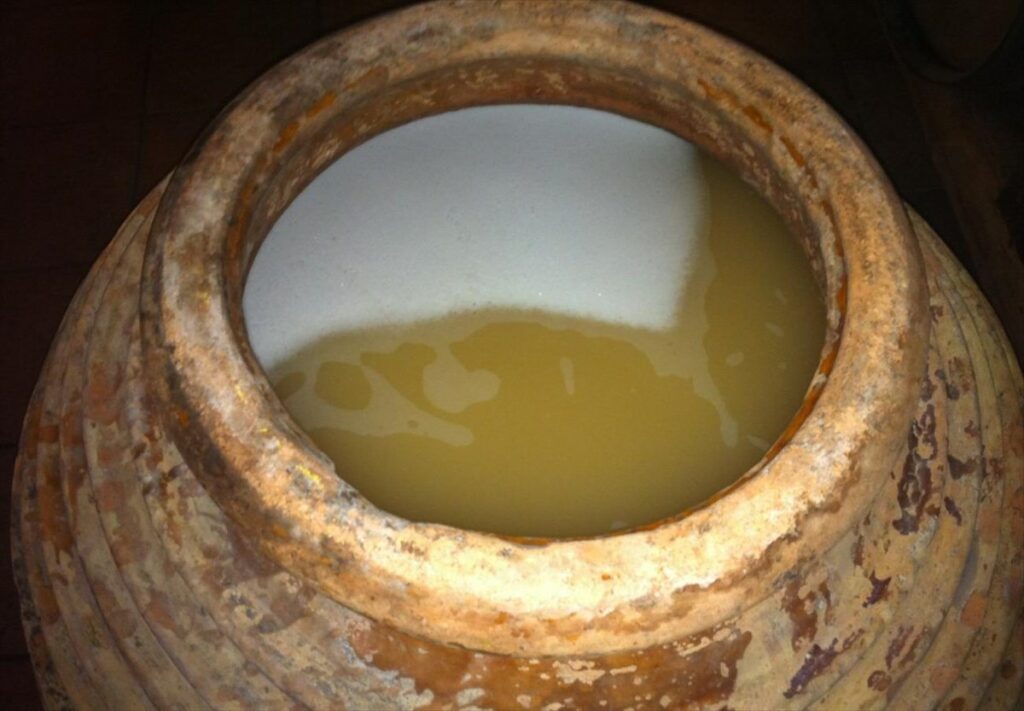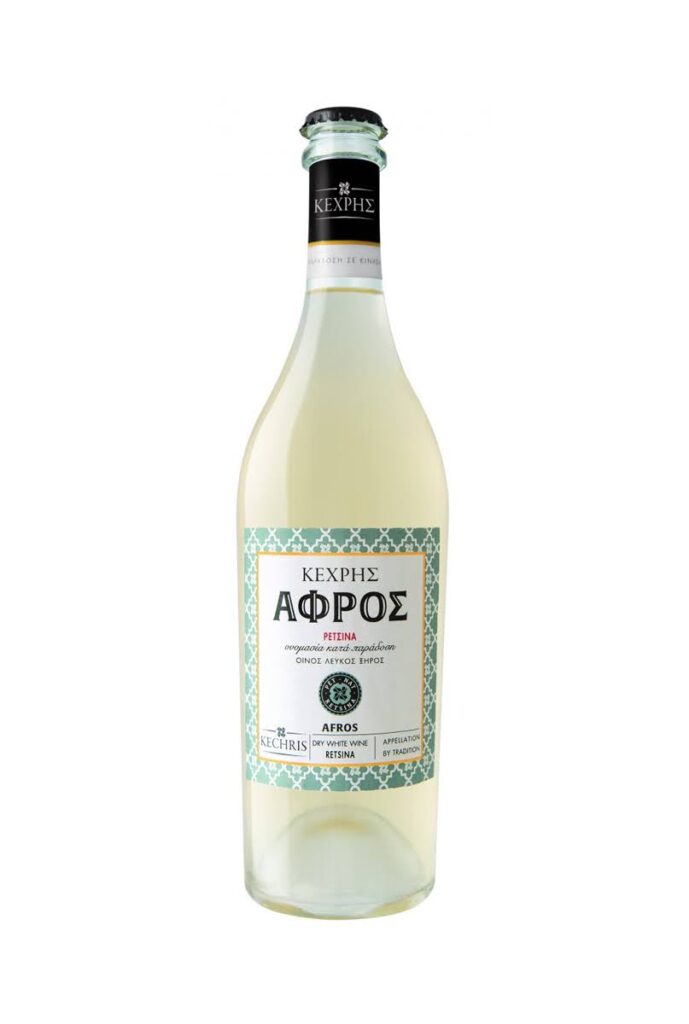It is unlikely to visit Greece without tasting Retsina! It is the best known traditional Greek wine, although often associated with cheap house wine served in taverns, mainly in the 1960s, due to increased demand that led to quality degradation. However, Retsina has come back, slowly gaining ground and reputation, starting from the beginning of the 21st Century.
The European Union treats the name “Retsina” as Protected Designation of Origin (PDO) and Traditional Apellation for Greece. Council Regulation (EC) No 491/2009 demonstrates that: “Retsina shall be wine produced exclusively in the geographical territory of Greece using grape must treated with resin from the Aleppo pine. The use of Aleppo pine resin is permitted solely for the purpose of obtaining Retsina wine under the conditions laid down in Greece’s applicable provision.“
Simply put, the name “Retsina” is used exclusively for the Greek wine which is produced with the Greek traditional method of adding pine resin into the must (not more than 1 kg of resin in 100 ml of must). Pine resin is extracted, in particular, from the mediterranean tree Aleppo pine (Pinus halepensis).
Retsina is typical white, although red and rosé types are also acceptable, and only the Greeks are permitted to produce it.
Although Retsina is treated as PDO and Traditional Apellation for Greece, it may also appear on the market entitled to a Protected Geographical Indication (PGI), as there are 15 legally established geographical indications in Greece, in honour of the most qualitative types of Retsina:
- 3 PGI District wines: Attici, Viotia and Evia
- 12 PGI Area wines: Mesogia, Kropia or Koropi, Markopoulo, Megara, Peanea or Liopesi, Pallini, Pikermi, Spata, Thebes, Yaltra, Karystos and Chalkis.
Retsina is dated from more than 4000 years ago. Its history starts with ancient Greeks, who stored wine in ceramic amphorae and used pine resin as an interior coating for the vessels, aiming to prevent the unlimited oxidation of wine. The resin would also act as a connective material in case of cracks and small breakings of the containers. As pine resin is a sticky, translucid, aromatic liquid and wine absorbs smells very easily from the surrounding, the expected result was an aromatic product with an intense bouquet of resin.
Along with the particular characteristics of the grape variety used for the fermentation, Retsina has a typical pine-and-lime, saline finish. A main difference from historic times is that modern Retsina is much more delicate in flavor. In ancient times wines were normally salty, because salt was the primary available preservative.

Photo: Tetramythos Winery in Diakofto, Aigialeia, Peloponnese
Afros, produced by Kechris Winery in Amyndeo, Greece is a peculiar style of Retsina. I decided to share my tasting comments, in principle, as it is the first pet-nat Retsina and also because of its characteristic nose of resin combined with clear notes of Chios mastic (what a fantastic aroma!).
Pét-Nat is short for pétillant naturel, which is the French term for “naturally sparkling”. Pét-nat wines are made with what is known as the “ancestral” method (méthode ancestrale on French labels), which is the oldest version of sparkling winemaking with origins in France.
This method involves bottling before first fermentation has finished (i.e. interruption of the natural fermentation), allowing the process to complete in bottle, without any addition of either secondary yeasts or sugar, versus the traditional method. Thus, there is less room for control in how the wine will result. However, Pét-Nat has gained a bit of buzz lately with growing popularity in the natural/organic movement, due to its more rustic method of winemaking, resulting to a slightly less fizzy wine style with lower alcohol by volume.
The Pét-Nats are usually hazy, as unfiltered, and they are often bottled with a stopper (such as beer) and not with cork.
I first tasted Afros in December 2018 when attending the Vinetum “Sparkling Wine Event” in Athens, Greece and was more than pleased… Another tasting in December 2019 was the trigger for publishing this post!

- Name / Vintage: Afros 2018
- Retsina “Appellation by Tradition”
- Winemaker: Kechris
- Wine Region / Country: Amyndeo / Greece
- Style: Sparkling Dry
- Variety: Roditis
- Alcohol by volume (Abv): 12.5%
- Total Acidity: 5.2 g/l (in tartaric acid)
- Residual Sugar: 5.0 g/l
 White
White Sparkling
Sparkling
Winery maps
Winery website
Appearance: Slightly hazy with lemon-green color and fizzy, with discrete bubbles that rise quickly to the surface of the glass
Nose: Intense citrus fruit aromas, with sensible notes of resin and Chios mastic
Palate: Complexity in the mouth with flavours of lemon, grapefruit, bergamot, ginger, peach, mahlab and yeast
Soft foaming, with high acidity and light body
Very vivid and aromatic with a long citrus aftertaste
Food match: This fresh and acidic wine matches very well with fried cod fish with garlic sauce.
Serving temperature: 8-10oC
